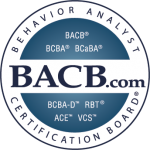Therapist Course
Work with children with autism, sensory disorder, social communication disorder and related developmental conditions

Next batch starting on
2 September 2024
Enhance Your Clinical Skills
This course provides you with the practical skills and techniques for making a bigger impact on children’s life.
Learn how to help children who have social and communication disorders, including those on the autism spectrum or with other developmental disorders.
Think differently, make better decisions, and use evidence-based strategies to facilitate improve children’s speech, language, and social development.
Master the new, internationally emerging approach that combines developmental psychology, speech therapy, and behavior analysis into a comprehensive intervention model.
Starting Date:
2 September 2024
Schedule:
1 meeting per week, every Monday at 16.00 WIB
Course Duration:
8 weeks
Meeting Duration:
1 hours and 30 minutes per meeting
Location:
Online
Format:
Live, synchronous
Language:
Bahasa Indonesia
Key Information
Live, Interactive Sessions
Join live events where you can participate and ask questions in real-time
Multimodal Intervention Model
Learn cutting-edge therapeutic strategies from speech therapy, ABA and developmental psychology and apply them in a cohesive manner
International Board Approval
Our course is approved by the International Board of Behavior Analysis, ensuring the highest standards of education and professional recognition.
Course Highlights
Who is this program for?
This course is ideal for current therapists or those aspiring to be therapists, as well as professionals and specialists who wish to understand the principles and practice of effective therapy.
No formal academic prerequisites are required, but it is particularly suited for:
- Graduates in Psychology
- Graduates in Speech Therapy
- Graduates in Occupational Therapy
- Experienced Therapists
- Child Psychologists
- Pediatricians

Luca Serventi, Psy, BCBA
With over two decades of international experience in therapeutic interventions for children with developmental disorders, Luca brings unparalleled insight and depth to this course. He studied Clinical Psychology at the prestigious Padua University in Italy and further honed his skills in Applied Behavior Analysis at both Kent University in the United Kingdom and the Florida Institute of Technology in the United States. As the Clinical Director at Joyin since its inception, Luca has consistently demonstrated his commitment to excellence and innovation in the field. His extensive clinical experience spans from working with the Verbal Behavior Approach to embracing developmental and naturalistic methodologies. Luca's unique blend of academic prowess and hands-on practice ensures that this course is not only highly informative but also practically applicable, making it an invaluable resource for therapists seeking to enhance their skills and effectiveness.
Course Designer
Your Trainer

Joice Limpo, M.Psi
A child psychologist who graduated from the University of Indonesia, Ms. Limpo has dedicated her career to working with children with autism and social communication disorders. With extensive experience in therapist training and supervision, Ms. Limpo combines her profound knowledge and practical skills to create an engaging and effective learning experience. Her commitment to improving therapeutic practices ensures that participants will gain invaluable insights and techniques, making this course an exceptional resource for professionals seeking to enhance their competence and impact in the field.

Abella Claudia Yokina Saragih, M.Psi
As a registered psychologist with a master's degree in Educational and Developmental Psychology from Universitas Airlangga, Ms. Saragih excels in content delivery and therapist training. Her sessions are infused with a deep passion for the field, making her an invaluable asset to the course. Ms. Saragih's dedication to empowering therapists with cutting-edge knowledge and practical skills ensures that participants will leave with the tools needed to excel in their practice. Her engaging and insightful training approach guarantees an effective learning experience for all attendees.
4,75

100% trainee satisfaction based on participants' feedback
What you'll learn?
Set The Foundation for Engagement and Learning
- Joint Engagement as pivotal behaviour: definition and function.
- Therapeutic strategies to increase child’s engagement:
- Environmental arrangements to reduce distractions
- Reciprocal positions to facilitate engagement
- The importance of child’s motivation
- Emotional Animation
- Responsive interaction style
- The role of Joint Action Routines (JARs) in child development
- Sensory Social Routines (SSRs)
- How to develop new SSRs
- How to facilitate child’s initiation and communication during SSRs
- Examples of SSRs
- Reactive strategies to child’s disengagement
- How to handle difficult behaviour
- Measuring child’s engagement and data collection
The Bases of Social Reciprocity and Joint Action
- Transactional Model of Development
- Importance of balanced interaction in child’s social and language development
- Strategies to develop Social Reciprocity:
- Turn-taking format
- Follow child’s lead
- Mirroring
- Extending
- Matching
- Activity ideas for developing social reciprocity
Facilitate Language Acquisition Through Modelling
- Importance of social interaction for phonetic learning
- Modelling
- Marking modelling
- Reflective modelling
- Characteristics of effective modelling strategy
- Common mistakes: Correcting & Instructing
- Modelling vs. Correcting
- Practical suggestion to run the modelling strategy
- Song-Gesture Routines (SGR)
- Activity ideas
Shape The Interaction Through Prompting and Reinforcement
- Shaping the mand
- Prelinguistic mand
- Linguistic forms of manding
- Practical suggestion for prompting mands
- Strategies and environmental arrangements to create opportunities for communication
- Inadequate portions
- Control access
- Offer choices
- Offer unwanted items
- Use items that require adult’s assistance
- Playful obstruction
- Balanced turns
- Put object in sight but out of reach
- Missing item
- Practical suggestions for program implementation
- Social sensory routines with objects
Create Opportunities for Communication
- Establishing behaviors for initiating joint attention
- Common form as IJA behavior
- Teaching IJA
- Establishing behaviors for responding to joint attention
- Common form as RJA behavior
- Teaching RJA
- Teaching activities to build joint attention
- Establishing the routines
- Shaping eye contact
- Shaping pointing
Learning Play Skill Through Imitation and Turn Taking
- Importance of play in child’s development
- The importance of imitation in child’s development
- Strategies to develop new play actions and play routines
- Demonstrating new action on toys
- Verbal markers
- Waiting
- Using prompt and prompt fading
- Developmental stages of play
- Indiscriminate play
- Discriminative play
- Combinatorial Play
- Pretend Play
- Self-centred symbolic play
- Decentred symbolic play
- Combinatorial pretend
- Using other as actor
- Substitutions
- Practical suggestions for program implementation
Parental Guidance Style and Daily Living Routines
- The impact of parental guidance style on child’s independence
- Zone of Proximal Development (ZPD)
- Impact on over-prompting on developing child’s independence
- Develop child’s independence skills during daily living routines:
- Transitions
- Meal & snack time
- Dressing & undressing
- Bathing
- Household Chore
Addressing Barriers To Child’s Development
- Medical conditions
- Daily schedules
- Eating Disorders
- Sleeping Disorders
- Digital Addiction
- Physical activity
certificate
Certificate of completion will be given to all participants at the end of the training. Hours can be counted towards the requirement to sit for the RBT® international certification.

Contact Sales
Are you part of a centre, school or a hospital and wants to train your staff?
Please leave us your contact details so we can deliver a customized offer tailored to your company’s need. No commitment.
- Special price for more than 4 participants
- Tailored content to your area of interest and organizational needs
- Opportunity for hands-on coaching and curriculum development
